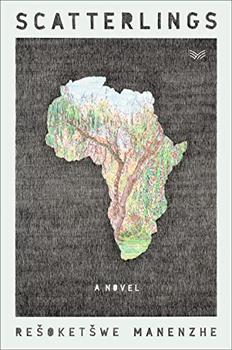Page 4 of 4
There are currently 29 reader reviews for Scatterlings
Write your own review!
Dorothy H. (Folsom, CA)
South Africia 1927
I was wanting more about the impact of the Immorality Act of 1927 on the residents of Cape Town. I also found it a bit confusing at the start with the "stories" and rituals of the non white residents. As I read further on this lessened. The author is very descriptive of the area. The story is about one family (father white, mom black and two children) and the impact of the new law.
Carrie D. (Freeport, ME)
good writing?
Sometimes I really liked this book, and other times I needed to reread to be sure I was catching the right meaning...and then I still wasn't sure. I was really interested in the subject matter, but I was just not drawn in to the characters and I did not feel enlightened about how the South African Immorality Act effected people during that time. I was more disappointed than drawn in.
Leslie G. (Peabody, MA)
Poetic, but Slow
At one point in the novel, the speaker mentions the description and analysis of a sunset as being "excessive and unnecessary." While there are moments of poetic descriptions of nature in Scatterlings, sometimes the passages are just too extensive. In contrast, the storyline and characters often seem not nearly as fleshed out. I was left with many unanswered questions because I never felt invested enough in the characters and their situations because of this lack of specificity.
Jane H. (Prospect, KY)
Scatterlings
I have mixed feelings about this book. It wasn't an easy read..I am assuming this is a translation just by the cadence of the text. There was so much African history and folklore appearing around the actual storyline… I enjoyed that part thoroughly. The story itself seemed a little too fairy tale-ish …it didn't match the gravity of the racial history underlying it all. I would have preferred a much more straightforward approach by the writer. I understand, though, that the very thing I found unappealing was probably the most meaningful to the writer herself.
I enjoyed it…a very different reading experience.
Jill S. (Durham, NC)
A Lyrical Novel That Breaks Its Spell
I anticipated that Scatterlings would be primarily about the ramifications of the South African Immortality Act, passed in 1927, which deemed it a crime for Europeans (whites) and natives (blacks) to engage in intimate relations.
Indeed, this is how the novel starts out: Abram van Zijl and his emotionally unstable wife Alisa, parents of two mixed race daughters, find themselves in the crossfire of this immoral new law. But the author wants to examine the choices we make, what it means to belong, and the fervent allure and tragedy that draws people to (and forces them away from) Africa.
It particularly focuses on
…more Alisa, who was born the daughter of a Jamaican slave and adopted by an Englishman, leaving her to straddle the white/black divide and experience herself as rootless and ultimately, melancholy and lost. Large segments of her journal are revealed that are more expository than emotive or introspective. While her feelings of oppression are revealed, the tone of the journal keeps readers at a distance from a true understanding of a heinous act that Alisa commits early on in the novel.
Ultimately, my reading experience was mixed. On one hand, this author writes beautifully and lyrically, introducing ancestral myth and ritual into her narrative and composing passages that are memorable, mesmerizing, and profound. On the other, there are narrative choices (such as the journal) that, for me, broke up the spell that was being created and not fully allowing me to immerse into the story. I thank BookBrowse and Harper Via for enabling me to be an early reader in exchange for an honest review. (less)
